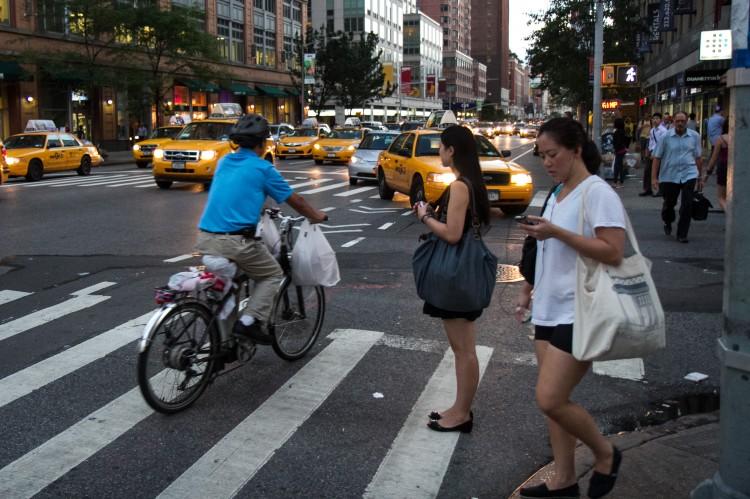Delivery Bicyclists, Business Owners Face Fines
Bicyclists delivering takeout food and other commercial cyclists caught running red lights, riding on sidewalks, and shunning helmets are under the spotlight by city officials who want to see the rules followed.

Community outreach staff with the city's Department of Transportation give a presentation about commercial biking rules to restaurant owners Wednesday at Havana Central in Times Square. Benjamin Chasteen/The Epoch Times

Zachary Stieber
Senior Reporter
|Updated:
Zachary Stieber is a senior reporter for The Epoch Times based in Maryland. He covers U.S. and world news. Contact Zachary at [email protected]
Author’s Selected Articles





